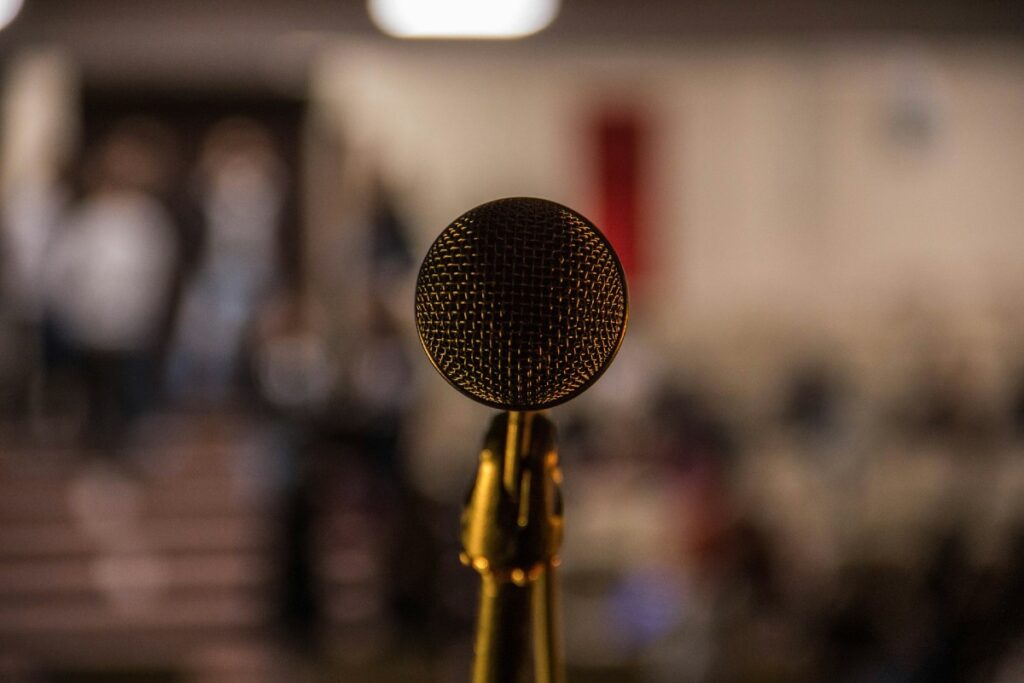
Just one day after a free-speech controversy at the University of South Carolina prompted a question in the White House press room, a new report ranked USC as the 34th best college in the nation for freedom of speech on campus.
The rankings, released Sept. 5 by the nonprofit Foundation for Individual Rights and Expression (FIRE), were based on a poll of more than 58,000 students by the survey research firm College Pulse. It graded colleges on several free-speech metrics, including comfort expressing ideas, administrative support and openness. Here in the Palmetto State, only Clemson scored higher than USC, placing 21st. Overall, the University of Virginia took the top spot, with Harvard coming in last at number 251.
The USC controversy began two weeks ago, when a number of high-profile graduates and groups objected to a scheduled Sept. 18 “roast” of Vice President Kamala Harris featuring Proud Boys founder Gavin McInnes and right-wing provocateur Milo Yiannopoulos. The Proud Boys has been classified as an extremist hate group by the Southern Poverty Law Center. The event is being sponsored by the USC chapter of Uncensored America.
In particular, critics argue that advertising for the event is obscene and sexist, and may violate both USC’s policies against discrimination and South Carolina law.
“The image of Vice President Harris [in the ad] superimposes on her face an image of a white drop near her mouth,” NAACP leaders wrote in an Aug.t 30 letter to USC President Michael Amiridis. “Lest there be any doubt of the obscene nature of the image, rather than listing the Vice President’s name as Kamala, the advertisement changes the first three letters to a vulgar term for semen.”
In response to campus concerns, Amaridis and USC Board Chair Thad Westbrook condemned the “vile and juvenile rhetoric used to promote this event,” but defended the university’s commitment to free speech.
“Like many other universities across the country, USC has adopted the Chicago Principles that pledge to remove obstacles to constitutionally protected free expression on our campuses,” they said in a statement on the school’s website. “We remain steadfast in safeguarding the First Amendment rights of our students, even when we may be offended by their choices and statements.”
The campus debate became a full-blown national issue Sept. 5 when White House spokesperson Karine Jean-Pierre was asked about it by a reporter for The Grio. Jean-Pierre said she was unfamiliar with the specific event, but spoke of how “proud” she and her colleagues were to work with Harris.
“I can’t speak to every racist, misogynistic, sexist comment that’s been out there,” she added.
Asked whether FIRE’s rankings were a vindication of USC’s decision to allow the event to go forward, USC spokesman Jeffrey Stensland told Statehouse Report the university didn’t see it that way.
“I would not say it was a vindication, no,” Stensland said in a statement. “The ranking is recognition of our long history of commitment to free speech and not a singular event. The upcoming event…is something we must allow, but not something our institution is interested in promoting.”
In other recent news
![]() S.C. Board of Education passes statewide ban of cellphones in public schools. South Carolina school districts must ban students from using their cellphones during the entire school day, but exactly how they go about it is up to district officials, according to a policy the state Board of Education adopted Tuesday.
S.C. Board of Education passes statewide ban of cellphones in public schools. South Carolina school districts must ban students from using their cellphones during the entire school day, but exactly how they go about it is up to district officials, according to a policy the state Board of Education adopted Tuesday.
Former S.C. education superintendent has died. Former State Superintendent of Education Barbara Nielsen died Tuesday, according to an announcement from the Department of Education. Nielsen was the first woman to hold the title of S.C. Education Superintendent in 1990 and held it until 1998. She was 81.
Wilson took a taxpayer-funded trip to Mexican border. S.C. Attorney General Alan Wilson took a taxpayer-funded trip to a Texas border town this week to meet with state and federal officials about a rise in narcotics and human trafficking within the Palmetto State he says stem from an ongoing surge in undocumented migrants entering the country.
Free speech rights don’t extend to recording S.C. inmates, judge rules. The First Amendment does not give anyone the right to record prison inmates for publication, a federal judge decided in dismissing a lawsuit against the South Carolina prison system.
State health department to make health facility violations public. The South Carolina Department of Public Health is working to hold health care facilities and services accountable to improve care across the state.
S.C. expects $137M in federal funds for energy-saving households and businesses. The federal funding is aimed at reducing energy use and the power bills property owners and renters face while also creating jobs and combating climate change.
S.C. changes blue crab fishing laws to regulate industry. Most of the changes pertain to commercial fishers but the S.C. Department of Natural Resources wants recreational crabbers to be aware of a few.


